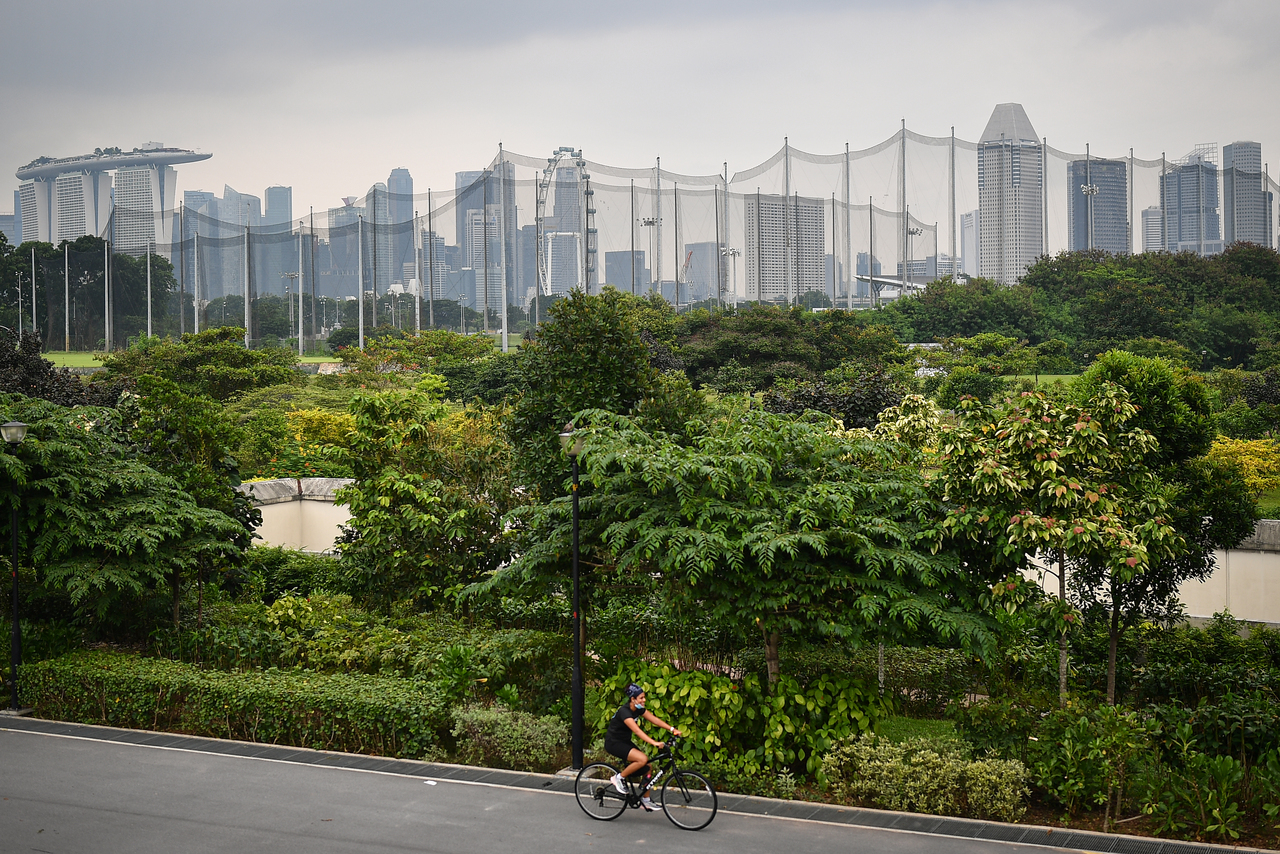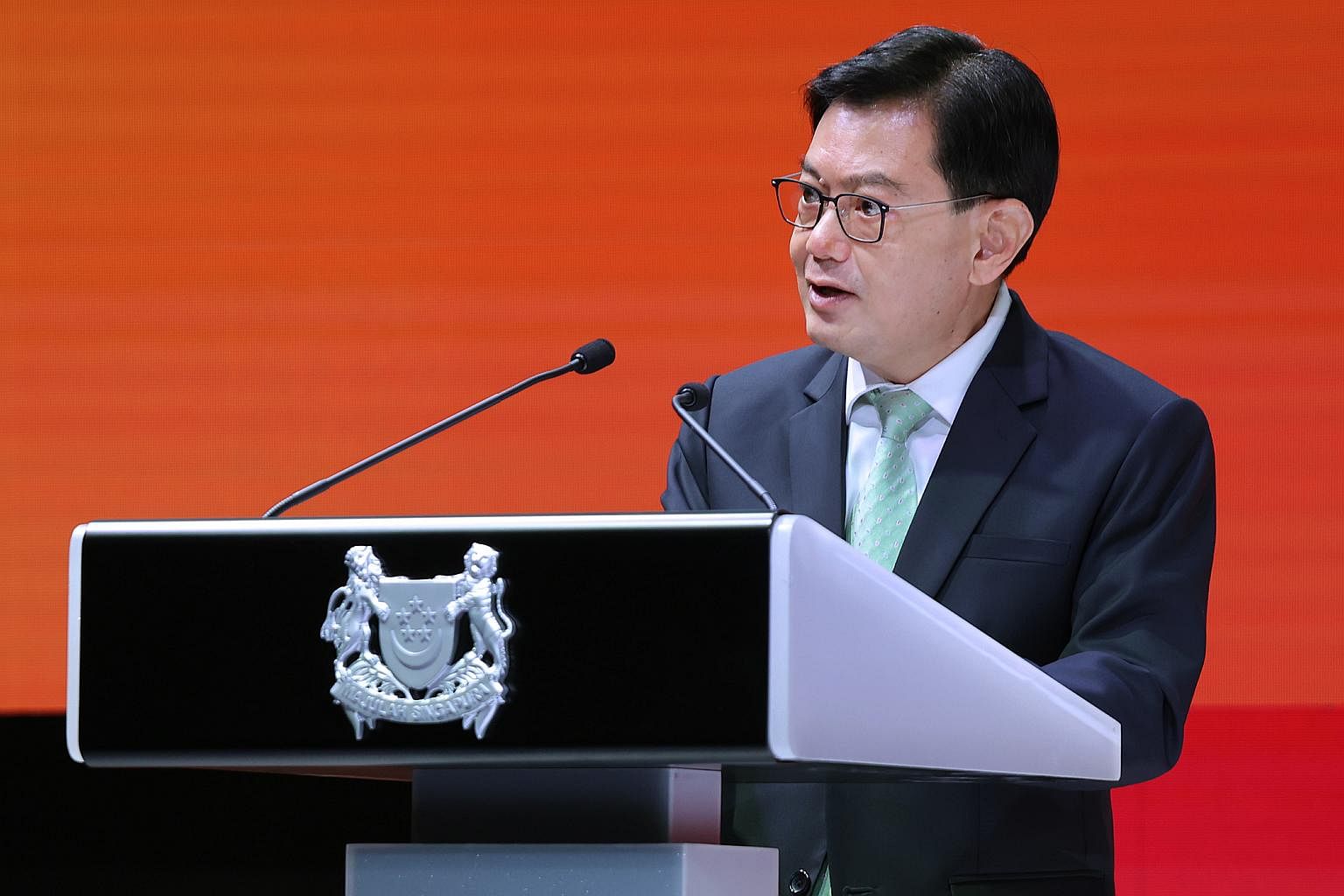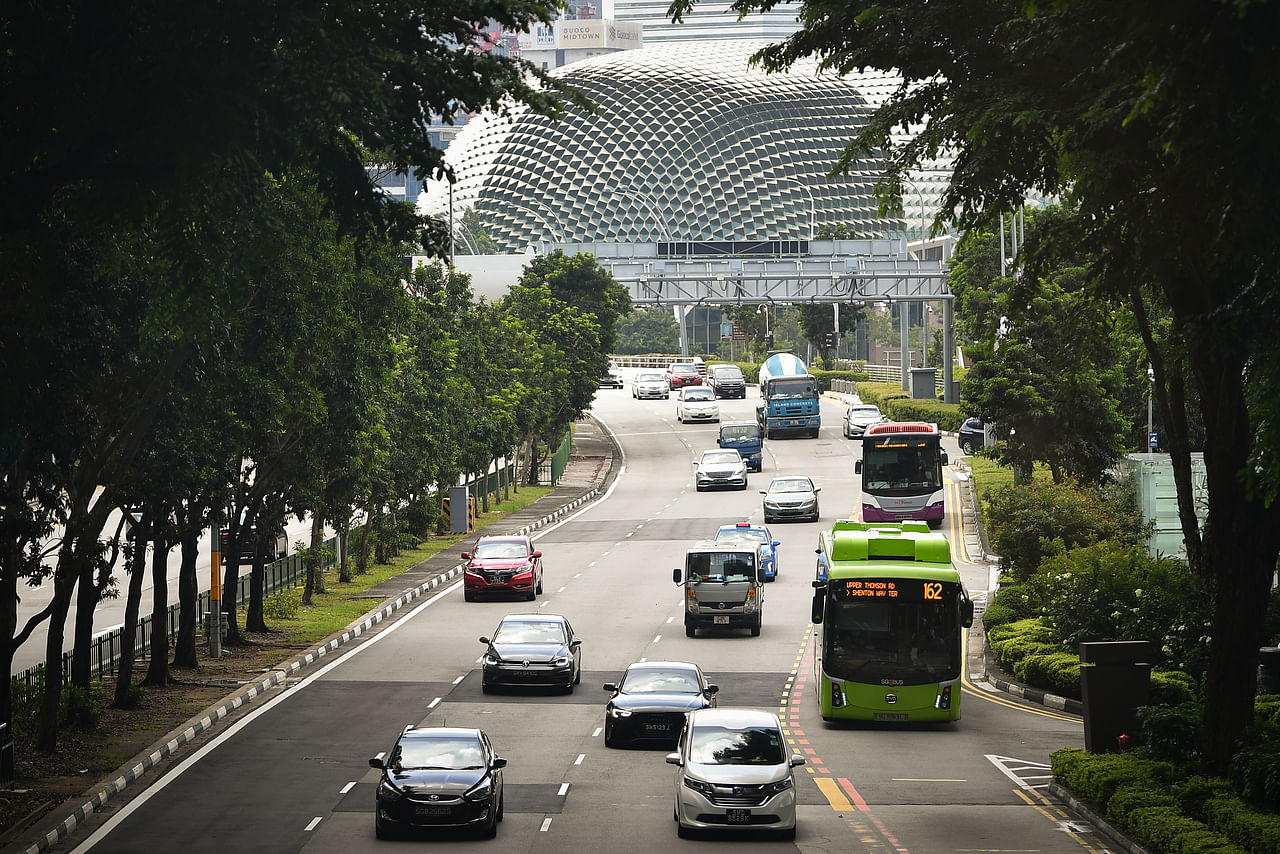Nature not a passive victim of economic development, can contribute to climate change fight: DPM Heng Swee Keat
Sign up now: Get ST's newsletters delivered to your inbox

Mr Heng Swee Keat said unlocking the potential of what nature has to offer at scale will require a significant amount of investments.
ST PHOTO: LIM YAOHUI
SINGAPORE - Nature is not, and cannot be, a passive victim of economic development, Deputy Prime Minister Heng Swee Keat said on Wednesday (Sept 29).
Not only does nature help make city life more liveable, it can also contribute to mankind's fight against climate change, he said, urging delegates gathered at the Ecosperity Week sustainability conference to take a fresh perspective on the natural environment.
The three-day conference is convened by Singapore's Temasek investment company for policymakers, investors, non-government groups and businesses, and is being held in a hybrid format with some attendees gathered at Marina Bay Sands. Wednesday marks the second day of the conference.
"While we must continue with our global effort to reduce carbon emissions, decarbonisation alone would not be sufficient," Mr Heng said. "We need to also adopt complementary strategies for carbon sequestration, and this is where nature-based solutions can play a big role."
Carbon sequestration refers to the ability of trees to take in planet-warming carbon dioxide (CO2) from the atmosphere, and store it in their leaves, roots, trunks and soil.
There is growing global attention being paid to the role of natural ecosystems, and how they can be conserved and restored so they can continue to do what they do best - photosynthesising and drawing down the amount of CO2 in the atmosphere.
Mr Heng said the potential for such nature-based solutions in South-east Asia is "tremendous", as the region is home to 200 million ha of terrestrial forests, and has the largest blue carbon stock in the world.
Blue carbon refers to the carbon locked up in marine ecosystems such as mangrove swamps and seagrass meadows. These habitats are known to store much more carbon than land-based forests.
Mr Heng said unlocking the potential of what nature has to offer at scale will require a significant amount of investments.
An earlier "carbon prospecting" study by the National University of Singapore's (NUS) Centre for Nature-based Climate Solutions had found that if about 1.55 billion ha of tropical forests (almost the size of Russia) under imminent threat of being cleared are saved from the axe, these plots could generate returns of more than US$46 billion (S$62 billion) a year through the sale of carbon credits.
But before gains can be reaped from nature, a few kinks must first be ironed out, Mr Heng said.

Besides making city life more liveable, nature can also contribute to mankind's fight against climate change, said DPM Heng Swee Keat at the Ecosperity Week sustainability conference.
PHOTO: MCI
One, a carbon marketplace with robust governance standards and an emphasis on trust must be built, he said.
Singapore is contributing to this on a few fronts, said Mr Heng, citing the NUS centre helmed by Professor Koh Lian Pin and the Climate Impact X (CIX) - a global carbon exchange and marketplace funded by DBS Bank, Temasek, StanChart and the Singapore Exchange announced earlier this year.
CIX is a promising solution in the fragmented carbon credit markets landscape today, which is characterised by thin liquidity and carbon credits of varying quality, said Mr Heng.
Singapore is also represented on the Taskforce on Scaling Voluntary Carbon Markets - a global initiative to help define the standards for carbon markets, he said.
Two, carbon must be properly priced to account for the negative externalities that it contributes to the global climate.
A higher carbon price, for instance, can make forest conservation projects more viable, since money can now be made through the sale of carbon credits. It can also make conserving a forest more profitable than, say, cutting it down for a plantation.
Mr Heng said the Singapore Government is reviewing the trajectory and the level of its carbon tax post-2023. The current rate is $5 per tonne of emissions - a rate that critics have claimed is far too low. The International Monetary Fund has recommended a carbon tax floor with prices ranging from $25 to $75.
Said Mr Heng: "By setting an appropriate level of carbon tax, we can spur sustainability efforts - including nature-based solutions - while remaining competitive."
Mr Heng said the Covid-19 pandemic did not derail the green movement, but instead gave it more momentum.

Carbon must be properly priced to account for the negative externalities that it contributes to the global climate.
PHOTO: ST
The global media is putting focus on this issue, he said, citing World News Day on Sept 28 that had focused on the climate crisis.
The Straits Times joins 500 newsrooms from around the world in telling the story of how climate change is already impacting the lives and livelihoods of communities, and how they are grappling with it.
Environmental accountability is also becoming a key consideration alongside profitability, said Mr Heng.
"What is clear is that carbon will become an increasingly greater constraint for the world. But this does not mean that global growth would be stunted, and human progress impeded. What we can achieve in the decades ahead, depends critically on what we do today," he said.
Other than reimagining nature, he also highlighted two other ways of overcoming resource constraints in a greener world - leveraging science and technology to make green choices less difficult, and cutting back on consumption in a way that will not compromise the standard of living.
"We need companies to better innovate and develop business models that are beneficial to consumers, low-carbon and yet, profitable," he said.
He cited a new business model that can spur the use of solar energy through subscription-based models where users pay-per-use instead of coughing up hefty upfront costs of installing and maintaining the solar panels.
"The world still has some way to go in arriving at concrete plans to achieve our climate goals," Mr Heng said. "This journey can be much easier if we are able to reimagine our constraints and turn them into opportunities."


